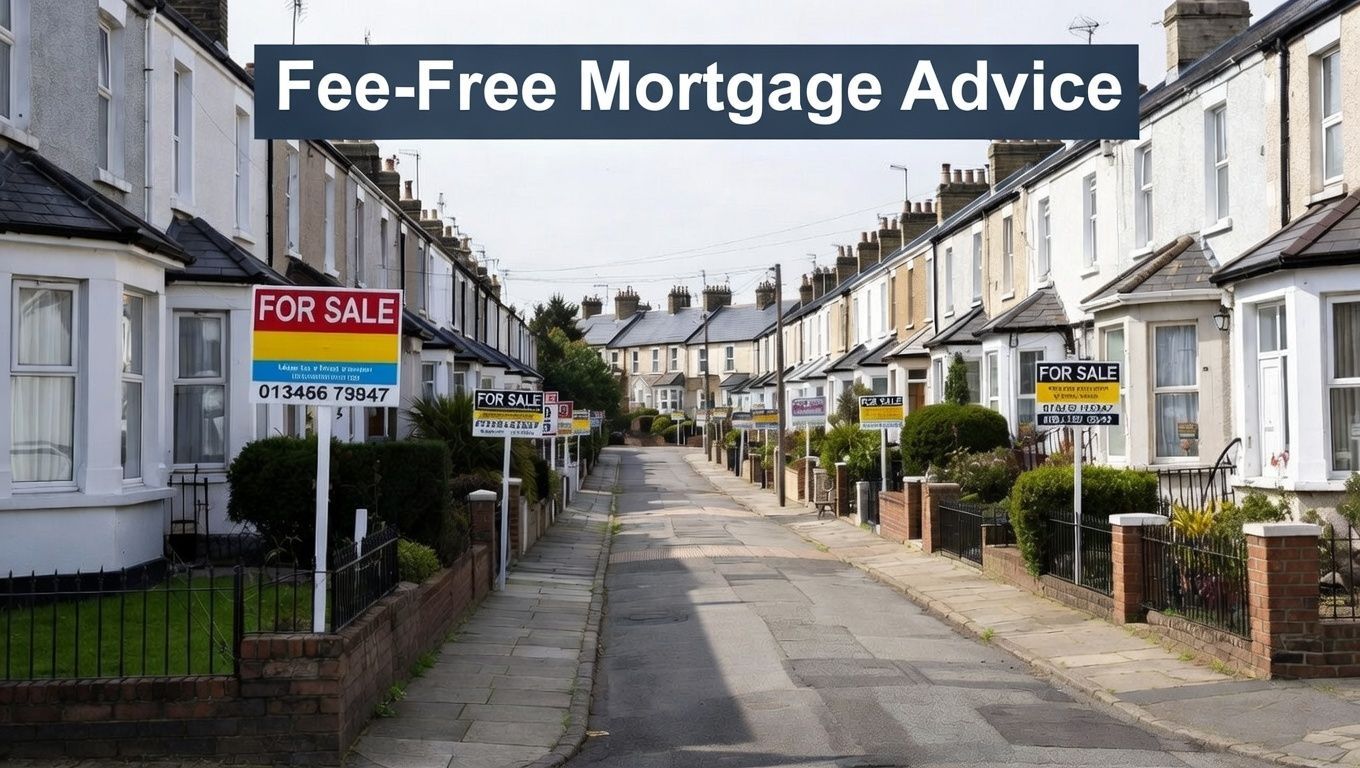First-Time Buyers: Common Mistakes and How to Avoid Them
First-Time Buyers: Common Mistakes and How to Avoid Them
Buying your first home is a big moment. It’s exciting, emotional, and often a bit confusing. You might already be picturing your new sofa, but before you jump in, it’s worth knowing where others have slipped up.
Let’s look at some of the most common mistakes first-time buyers make – and how to avoid them.
Mistake 1: Only Talking to Your Bank
It’s easy to go straight to your bank. You already know them, and they already know you. But here’s the catch: they’ll only offer their own mortgage products. That means you could be missing out on better deals elsewhere.
A whole-of-market adviser can compare hundreds of lenders. Some offer lower interest rates. Others give more flexibility. An adviser will help you find the right one for your situation.
Avoid it: Speak to a fee-free, whole-of-market mortgage adviser before making a decision.
Mistake 2: Not Getting an Agreement in Principle
An Agreement in Principle (AIP) gives you a clear idea of how much you can borrow. It’s a statement from a lender, based on your income and credit history. Without it, estate agents may not take your interest seriously.
You could also waste time viewing homes that are out of reach. Or worse, fall in love with one and find out you can’t afford it.
Avoid it: Get your AIP early. It shows you’re serious and gives you a realistic budget.
Mistake 3: Forgetting the Hidden Costs
Many first-time buyers only focus on the deposit. But that’s just the start. You’ll also need to pay for legal fees, surveys, moving costs, and sometimes stamp duty. These can add up to thousands.
If you’re not prepared, they can come as a nasty surprise later in the process.
Avoid it: Ask for a full breakdown of costs before you start. Plan ahead so you’re not caught out.
Mistake 4: Choosing the Wrong Mortgage Type
Mortgages aren’t one-size-fits-all. Some buyers go for the cheapest monthly payment without thinking about the future. Others lock into a long fixed rate when they might need more flexibility.
Fixed, variable, tracker… it can be confusing. What works for one person might not work for you.
Avoid it: Think about your next few years. Will you move? Do you want stability? Get advice and choose a mortgage that suits your life, not just your wallet.
Mistake 5: Not Asking Enough Questions
Many people feel they should already know how the mortgage process works. They stay quiet, hoping it’ll all make sense in the end. But it’s OK to ask questions – even the basic ones.
This is one of the biggest purchases you’ll ever make. You deserve to understand every step.
Avoid it: Speak up. Ask questions. A good adviser won’t mind and will take the time to explain.
Final Thought
Being a first-time buyer doesn’t mean going in blind. Yes, it’s a learning curve – but it doesn’t need to be a stressful one. With the right support, some early planning, and a clear idea of what to watch out for, you’ll be in a strong position.
Remember, everyone starts somewhere. Avoiding a few common mistakes can make all the difference when buying your first home.
First-Time Buyer FAQs
1. What is an Agreement in Principle and do I need one?
Yes, an AIP shows how much a lender may let you borrow. It helps you set a clear budget and shows estate agents you’re serious.
2. How much deposit do I need as a first-time buyer?
Most lenders require at least 5%, but a bigger deposit (like 10–15%) can give you better mortgage deals.
3. What extra costs should I budget for?
In addition to your deposit, you’ll need to cover solicitor fees, surveys, mortgage fees, moving costs, and possibly stamp duty.
4. Should I use a mortgage broker or go straight to my bank?
A mortgage broker can search the whole market for better deals and explain your options clearly. Banks only offer their own products.
5. What’s the difference between a fixed-rate and variable mortgage?
A fixed-rate stays the same for a set period. A variable rate can go up or down. Fixed gives certainty, variable gives flexibility.
6. Can I get a mortgage with a low credit score?
It’s possible, but your options may be limited. A broker can help you find lenders who work with lower credit ratings.
7. How long does the buying process take?
It varies, but once your offer is accepted, it usually takes 8 to 12 weeks to complete the purchase.
8. What if I change my mind after making an offer?
You can withdraw before contracts are exchanged. After that, it’s legally binding – so be sure before signing anything.











